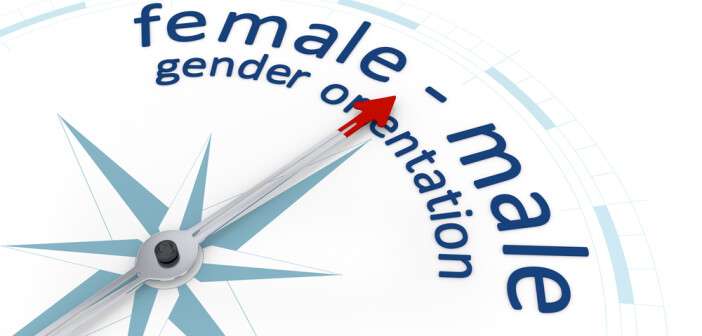The New Age Of Gender Definition
What we new about gender identity has been redefined over the last few months, with celebrities such as Caitlyn Jenner, Miley Cyrus and Ruby Rose who publicly identified as genderqueer and stirred the still-waters of gender social acceptance. We all came to believe in the gender strict definition of either male or female. Western Culture has come to view gender as a binary concept, with two rigidly fixed options: male or female, both grounded in a person’s physical anatomy.
For many people, the terms “gender” and “sex” are used interchangeably, and thus incorrectly, they’re not the same thing.
Sex is a biological, medical term — it refers to anatomy, hormones, etc. Gender, however, is far more complicated: It has to do with the roles and behaviours that society deems appropriate for men and women, which means it differs hugely between different cultures and periods of history.
Some people identify with the gender they were assigned at birth, based on their sex; those people are called “cisgender.” Other people identify differently, and they’re called a lot of different things. “Gender-expansive” is an umbrella term used for individuals that broaden commonly held definitions of gender, including its expression, associated identities, and/or other perceived gender norms, in one or more aspects of their life.
Given the complexity of gender, it is not surprising that an increasing number of terms and phrases are developing to describe it. Below are some of the key terms you might encounter:
Sex: is a biological, medical term, and is determined by your genitals, basically your anatomy. It describes, roughly, how your body functions. The appropriate terms here are “male,” “female,” and “intersex”.
Primary Sex Characteristics are reproductive characteristics, i.e. ovaries, testes, penises, vaginas.
Secondary Sex Characteristics are physical characteristics that appear after a person has gone through puberty – breasts for females, for example, or Adam’s apples for males, and many other traits that descriptive of male or female.
Intersex refers to people who are born with both male and female primary sex characteristics.
Sex Assigned At Birth refers to the idea that when people are born, we are categorized generally into “male” or “female” based on our genitalia. Then, based on that sex assignment, we’re generally raised and socialized as boys or girls. This is an especially sensitive topic for intersex individuals, whose primary sex characteristics have often been surgically altered to fit them into one of the two traditional sex categories, and who can then be forced to be socialized as one of the two conventional gender types. In this way, our Western culture erases the identity of people who exist between sexes.
Gender refers to roles that were socially constructed based on sex. A person’s gender doesn’t always correspond to their sex. Gender has to do with the behaviours we perform, and it has to do with the way male, female, we perceive ourselves in terms of the spectrum between (and probably beyond) masculinity and femininity.
Gender Identity is the way a person perceives their own gender (i.e. the only perception of their gender that matters!).
Gender Expression refers to the way an individual performs their gender, based on cultural notions and norms of masculinity and femininity that have to do with dress, self-presentation, and behaviour.
Cisgender A person who identifies with the gender assigned at birth. The prefix “cis-” is Latin and means “on this side of.”
Sexual Orientation. Term that refers to being romantically or sexually attracted to people of a specific gender. Our sexual orientation and our gender identity are separate, distinct parts of our overall identity. Although a child may not yet be aware of their sexual orientation, they usually have a strong sense of their gender identity.
Transgender means that an individual’s gender identity isn’t the same as their sex assigned at birth. “Trans-” is also Latin, and means “on the other side.”
Genderqueer and Non-Binary are very roughly analogous terms for people who identify as falling outside of the gender binary, being neither men nor women, regardless of sex. A person whose gender identity is neither man nor woman, is between or beyond genders, or is some combination of genders.
Gender Fluidity a person who alternates between identification with male, female and mixed gender states. This person doesn’t feel confined by restrictive boundaries of stereotypical expectations of men or women. In other words, a person may feel they are some days a woman and a man on others, or even feel neither term describes them accurately.
Pangender: A person whose gender identity is comprised of all or many gender expressions.
Cross-Dressing refers to the act of wearing clothes that aren’t associated with your gender. It’s not the same thing as drag: Cross-dressing is a day-to-day thing, something one does because it’s personally pleasing or comfortable.
Drag is a theatre-style performance of crossing genders. Drag kings are people who perform masculinity for a drag performance; drag queens are people who perform femininity for a drag performance. While there is some overlap between the drag community and the trans* community, being trans* and performing and living in a gender are not the same thing as drag, which is done specifically for entertainment.
It’s only through a thoughtful consideration and total acceptance of the uniqueness and validity of every person’s experiences of self, that we can develop greater acceptance for all. Nobody should be a target of disapproval or face challenges in life just because they differ from the rigid binary gender accepted as a norm. Acceptance that there is a wider and more varied gender identity will create greater inclusion for individuals who challenge the norms of gender, it will actually create space for all individuals to more fully explore and celebrate who they are.






